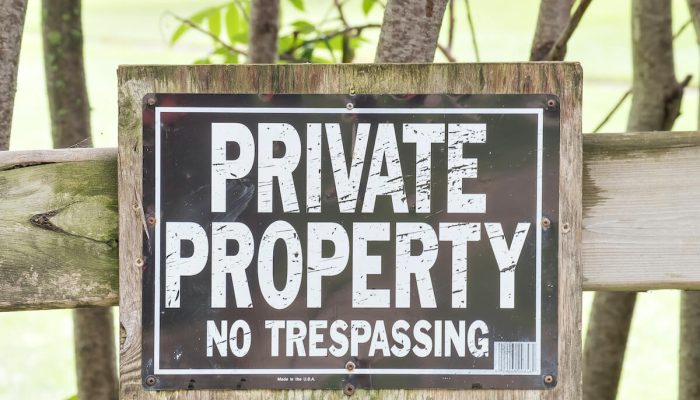Criminal Trespass Vs. Theft Crime
The crime of breaking and entering generally requires an intent to commit another crime – usually robbery, theft, or arson. Trespassing does not. This intent to commit a crime has to exist at the time of the breaking and entering. However, it only has to be an intent to commit the crime. With criminal trespass, you may not have entered or remained on the property with the intent of committing a crime. If you did not have permission the key is that you entered the property without permission, and that is what results in the criminal trespass charge.
There Are Three Degrees Of Criminal Trespass In Kentucky
You commit trespass when you knowingly enter another person’s land or property without permission. Criminal trespass in Kentucky is generally a misdemeanor offense; however, you should not ignore criminal trespass charges.
Depending on the circumstances, you could face significant jail time for a criminal trespass conviction:
- A person is guilty of criminal trespass in the first degree when he or she knowingly enters or remains unlawfully in a dwelling. Criminal trespass in the first degree is a Class A misdemeanor.
- A person is guilty of criminal trespass in the second degree if a person knowingly and unlawfully enters or remains in a building or on property that provides a notice against trespass with enclosures or fences.
- A person is guilty of criminal trespass in the third degree when he knowingly refuses to leave after a reasonable request to leave by a law enforcement officer, the owner, or any other person having lawful control over such property, or reasonable notice prohibiting entry.
The Penalties For Criminal Trespass By Degrees
All three degrees of criminal trespass are misdemeanors. The least serious misdemeanors are classified as Class C or Level Three.
These crimes can result in fines and jail time of up to a year and may also offer the chance of probation:
- Third-degree criminal trespass carries a maximum fine of up to $250.00.
- Second-degree criminal trespass carries a maximum jail sentence of 90 days in jail and up to a $250.00 fine.
- First-degree criminal trespass carries a maximum jail sentence of up to 12 months jail time and a fine of up to $500.00.
What Is Domestic Violence Shelter Trespass?
“Domestic violence shelter” is a residential facility providing protective shelter services for domestic violence victims.
(2) A person is guilty of domestic violence shelter trespass when: The person enters the buildings or premises of a domestic violence shelter that the person knows or should know is a domestic violence shelter or which is clearly marked on the building or premises as being a domestic violence shelter; and (b) At the time of the entering, the person is the subject of an order of protection. A charge is a Class A misdemeanor, which carries up to 12 months in jail and a fine of up to $500.00.
Available Defenses If You Are Charged With Criminal Trespass
Each crime requires that the person “knowingly” entered the property or remained on the property. Several defenses might be available if you are charged with criminal trespass.
Defenses of criminal trespass include:
- Mistaken identity.
- You had to enter the property to prevent a public disaster.
- You were on the property to stop a nuisance.
- The owner gave you permission to be on the property.
- You had a legal right to be on the property.
- Lack of intent
Take A Criminal Trespass Charge Seriously
A conviction on a charge of criminal trespass can result in jail time and a fine. In addition, if you plead guilty you have a criminal record. Having a criminal record can have negative consequences for many years. It can keep you from getting a job or renting in a neighborhood you desire. Usually, employers and landlords require criminal background checks. In addition, a criminal record can have a negative impact on child custody, education opportunities, and gun rights. Instead of pleading guilty or trying to handle the criminal charges on your own, consider speaking with a criminal defense lawyer. Your future could be at risk, but it is worth taking the time to seek legal advice before proceeding on your own.
Contact us (859-341-2500) for a Free Consultation!
—
 About Grubbs & Landry
About Grubbs & Landry
At Grubbs & Landry, PLLC, we are dedicated to personal and friendly service. We manage our practice in an ethical, cost-effective manner to best help our clients resolve their legal issues with the least expense possible. We pride ourselves in advocating for our client in divorce, child custody, and child support matters as well as other family law matters. We are active in prosecuting personal injury cases-recovering for the injuries our clients sustain due to the negligence of others. Additionally, we help our clients prepare for the future through the preparation of Wills, Power of Attorney and Living Will.

